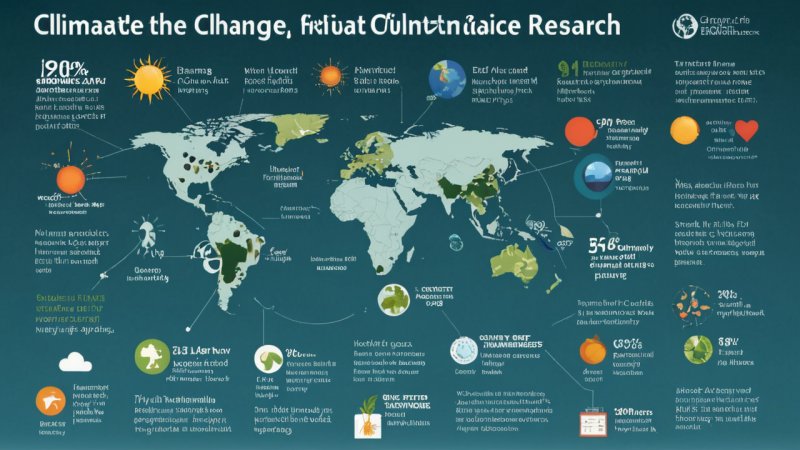Climate change is one of the most pressing issues of our time, affecting not only the environment but also the landscape of scientific research. In this article, you will learn about the significant ways climate change influences scientific inquiry, including funding opportunities, research focus areas, and collaborative efforts across disciplines.
Step 1: Recognize the Shifts in Research Funding
One of the first impacts of climate change on scientific research is the shift in funding priorities. Here’s how to identify these changes:
- Stay Informed: Regularly check government and private funding agency announcements to see how climate change is influencing allocated funds.
- Review Grant Applications: Look for new categories or specific calls for proposals related to climate science.
- Network: Attend conferences or webinars focused on climate research to understand the funding landscape.
Step 2: Identify Emerging Research Areas
Climate change is driving the emergence of new research areas. Here’s how to stay updated:
- Literature Review: Read recent publications in journals that focus on environmental science, policy, and technology to spot trends.
- Follow Influencers: Identify key researchers in climate science on social media platforms and engage with their work.
- Interdisciplinary Approach: Look for intersections between climate science and other fields such as economics, health, and urban planning.
Step 3: Collaborate Across Disciplines
The complexity of climate change necessitates collaboration across various scientific disciplines. Here’s how to foster collaboration:
- Build Networks: Join interdisciplinary research groups or initiatives focused on climate change.
- Engage with Stakeholders: Connect with policymakers, businesses, and communities to understand their challenges related to climate change.
- Participate in Collaborative Projects: Seek opportunities to work on joint research projects that address climate change impacts.
Step 4: Adapt Research Methodologies
Researchers may need to adapt their methodologies in light of climate change. Here’s how to do this effectively:
- Incorporate Real-Time Data: Use technology to collect and analyze real-time environmental data.
- Utilize Modeling Tools: Familiarize yourself with models that simulate climate impacts on various systems.
- Focus on Longitudinal Studies: Consider designing studies that track changes over time to capture the long-term effects of climate change.
Step 5: Communicate Findings Effectively
Effectively communicating your research findings is crucial in the context of climate change. Here’s how to enhance your communication:
- Use Clear Language: Avoid jargon and explain complex concepts in simple terms for broader accessibility.
- Engage with Media: Work with journalists to help disseminate your findings to the public.
- Utilize Visual Aids: Create infographics or videos to illustrate your research in a visually appealing manner.
Step 6: Stay Updated on Policy Changes
Finally, climate change is often tied to policy changes that can affect scientific research. Here’s how to keep abreast of these developments:
- Follow Legislative Updates: Subscribe to newsletters from environmental organizations to receive timely updates.
- Engage with Policy Experts: Attend public lectures or forums hosted by experts in environmental policy.
- Advocate for Research Needs: Be proactive in communicating the importance of scientific research to policymakers.
In summary, understanding the impact of climate change on scientific research involves recognizing funding shifts, identifying emerging areas of research, collaborating across disciplines, adapting methodologies, communicating findings effectively, and staying updated on policy changes. By following these steps, researchers can navigate the evolving landscape of scientific inquiry in the age of climate change.






